Animals
-
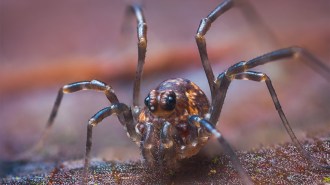 Animals
AnimalsDaddy longlegs look like they have two eyes. That doesn’t count the hidden ones
Despite its two-eyed appearance, Phalangium opilio has six peepers. The four optical remnants shed light on the arachnids’ evolutionary history.
-
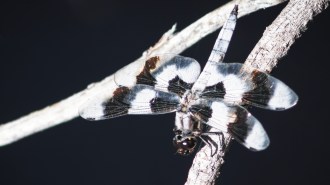 Animals
AnimalsMale dragonflies’ wax coats might protect them against a warming climate
The reflective wax, which cools males on sunny courtship flights, may also armor them against the effects of climate change.
By Jake Buehler -
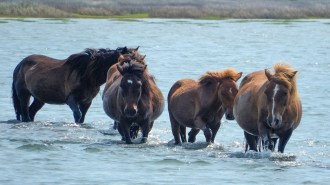 Animals
AnimalsMale mammals aren’t always bigger than females
In a study of over 400 mammal species, less than half have males that are, on average, heavier than females, undermining a long-standing assumption.
-
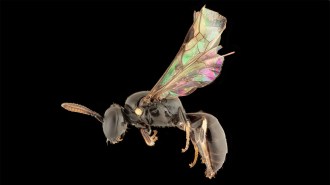 Animals
AnimalsA decades-old mystery has been solved with the help of newfound bee species
Masked bees in Australia and French Polynesia have long-lost relatives in Fiji, suggesting that the bees’ ancestors island hopped.
-
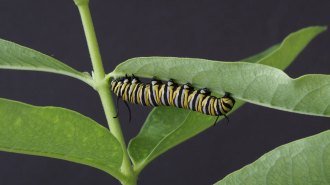 Animals
AnimalsBig monarch caterpillars don’t avoid toxic milkweed goo. They binge on it
Instead of nipping milkweed to drain the plants’ defensive sap, older monarch caterpillars may seek the toxic sap. Lab larvae guzzled it from a pipette.
By Susan Milius -
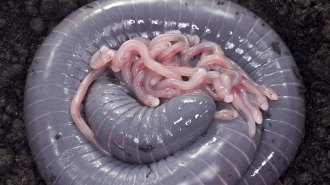 Life
LifeThis is the first egg-laying amphibian found to feed its babies ‘milk’
Similar to mammals, these ringed caecilians make a nutrient-rich milk-like fluid to feed their mewling hatchlings up to six times a day.
By Jake Buehler -
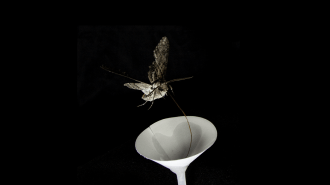 Environment
EnvironmentHow air pollution may make it harder for pollinators to find flowers
Certain air pollutants that build up at night can break down the same fragrance molecules that attract pollinators like hawk moths to primroses.
-
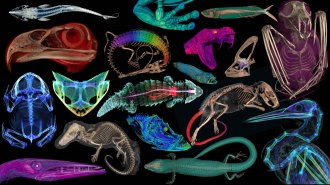 Animals
AnimalsSee 3-D models of animal anatomy from openVertebrate’s public collection
Over six years, researchers took CT scans of over 13,000 vertebrates to make museum collections more easily accessible to researchers and the public.
-
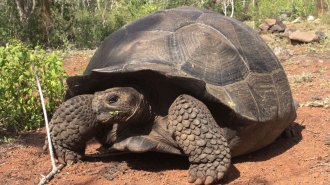 Animals
AnimalsGiant tortoise migration in the Galápagos may be stymied by invasive trees
An invasion of Spanish cedar trees on Santa Cruz Island may block the seasonal migration routes of the island's giant tortoise population.
By Jake Buehler -
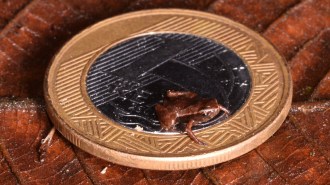 Animals
AnimalsThe Brazilian flea toad may be the world’s smallest vertebrate
Brazilian flea toads are neither a flea nor a toad, but they are almost flea-sized. The frogs are small enough to fit on a pinkie fingernail.
-
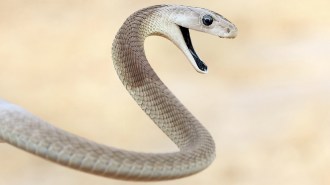 Health & Medicine
Health & MedicineSnake venom toxins can be neutralized by a new synthetic antibody
A lab-made protein protected mice from lethal doses of paralyzing toxins found in a variety of snakes, a new study reports.
By Meghan Rosen -
 Animals
AnimalsA new book explores the transformative power of bird-watching
In Birding to Change the World, environmental scientist Trish O’Kane shows how birds and humans can help one another heal.